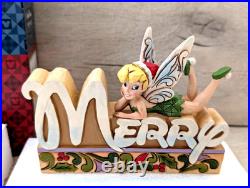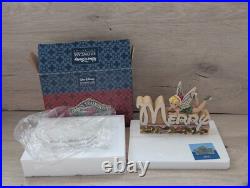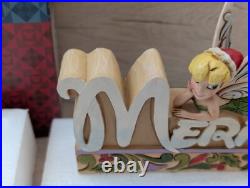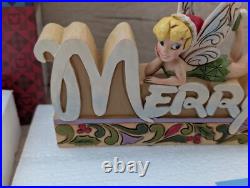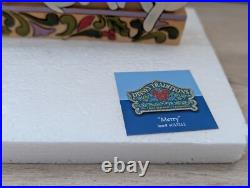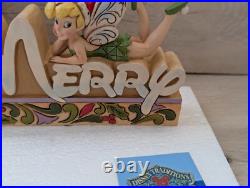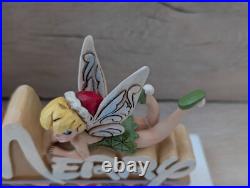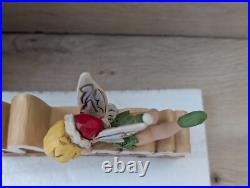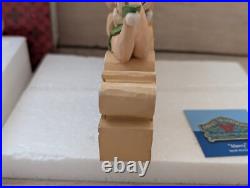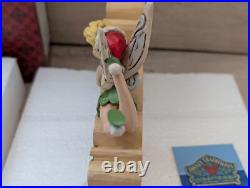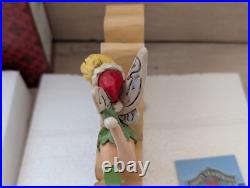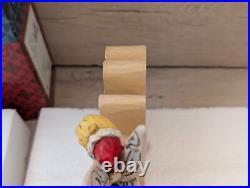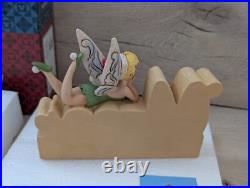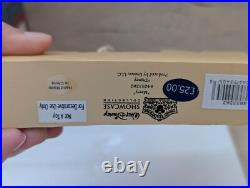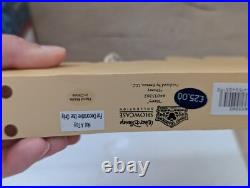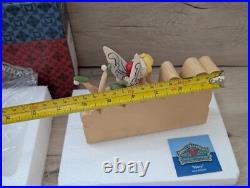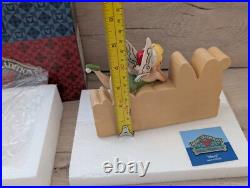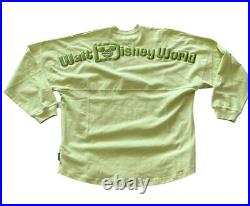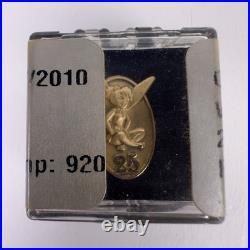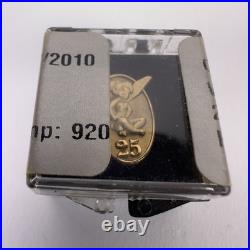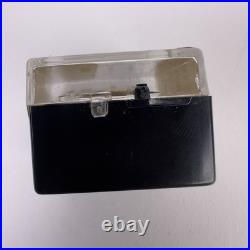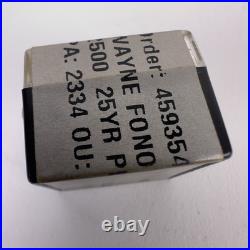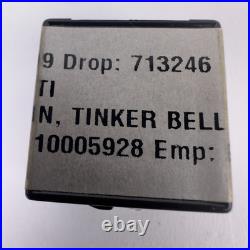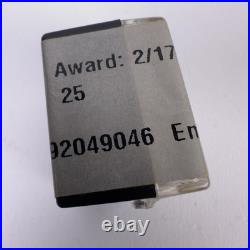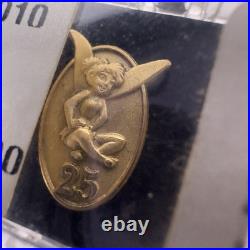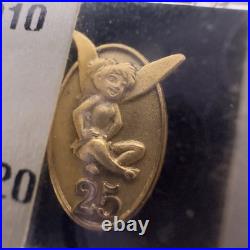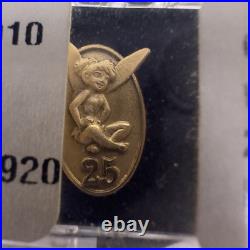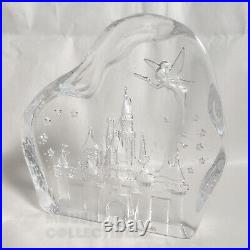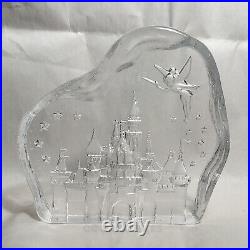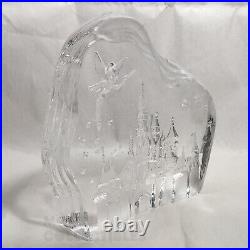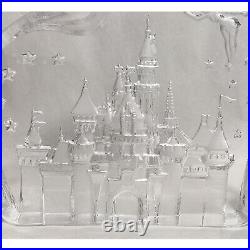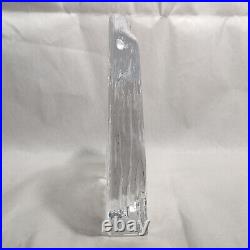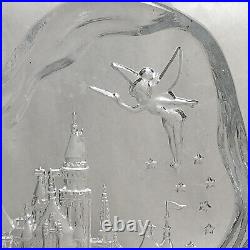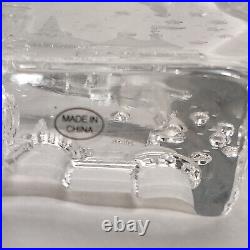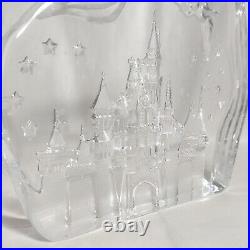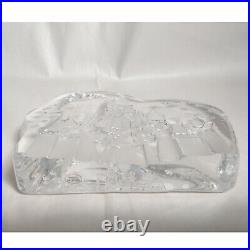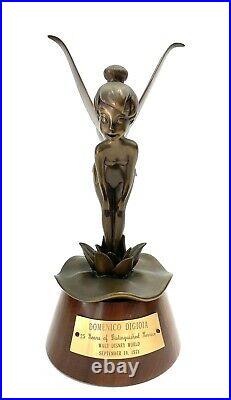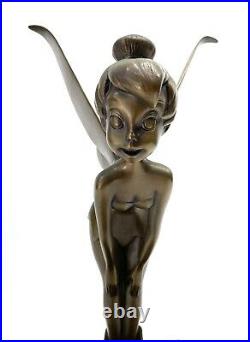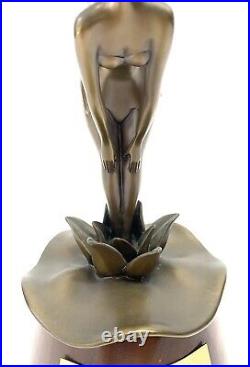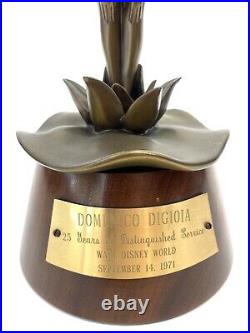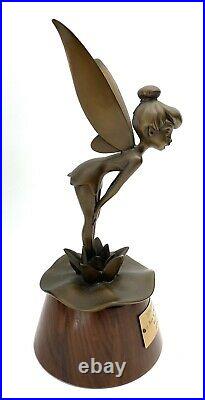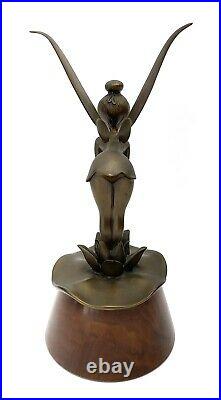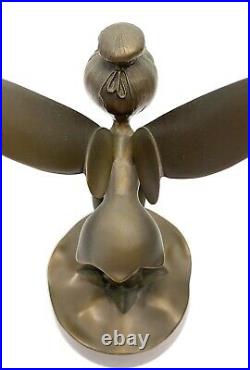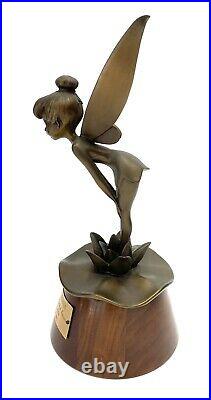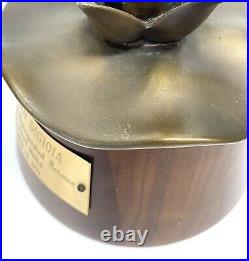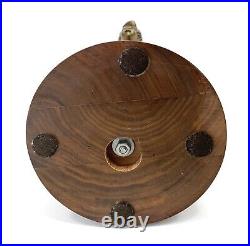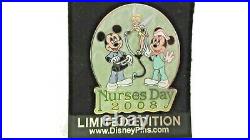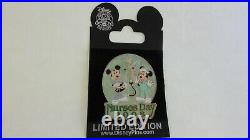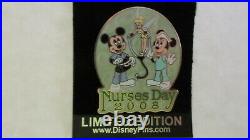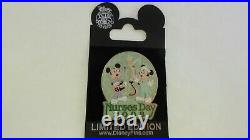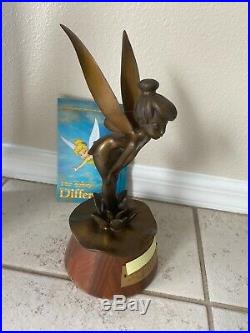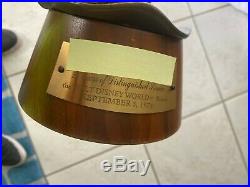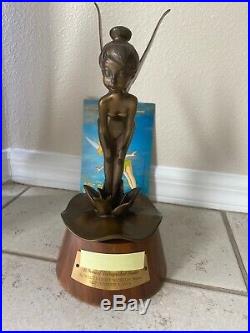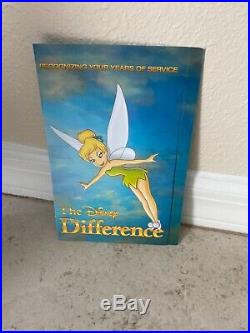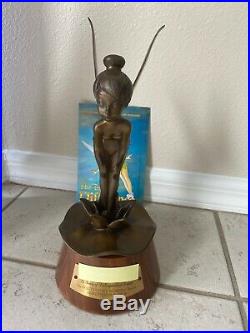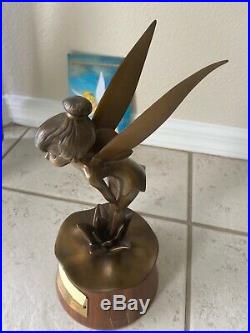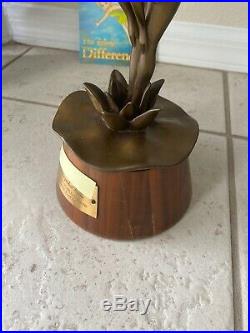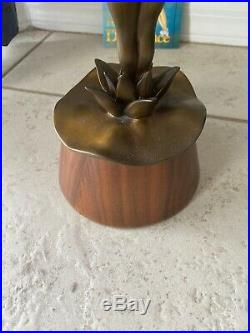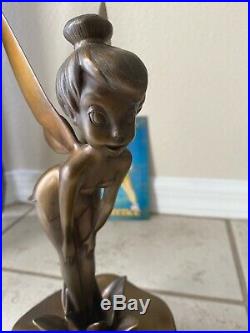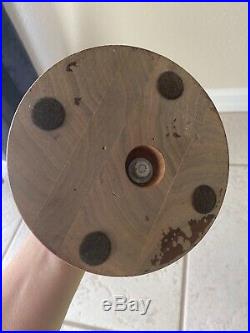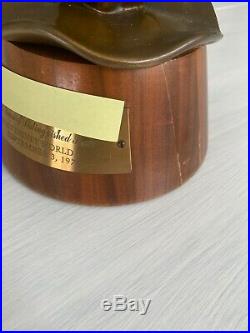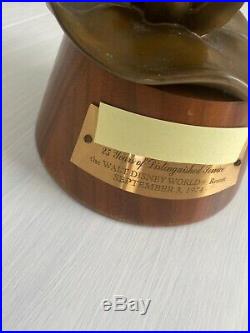
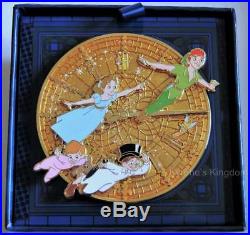

DISNEY PETER PAN 65TH ANNIVERSARY BIG BEN WENDY TINKER BELL JUMBO SIGNED PIN. Disney Peter Pan 65. Anniversary Big Ben Wendy Tinker Bell Jumbo Signed Pin LE 1000. Anniversary of the Disney movie, Peter Pan. It was released on February 15, 2018 at Disney World and Disneyland at an official pin trading night and is a Limited Edition of 1000. The pin features the detailed clock face and hands of Big Ben in deep gold. Flying in front with the help of some pixie dust are Peter Pan, Tinker Bell, Wendy Darling, John Darling and Michael Darling. The face has a sandblasted background, Tinker Bell and screen printed white pixie dust. The clock hands, Peter, Wendy, John and Michael are a pin on pin element. At the event, the pin designer, Matthew DeWater was present and signed the back of the pin which can be seen in the last picture. The pin measures 3 inches round. Peter Pan 65th Anniversary Collection – Big Ben Jumbo. This pin would make a great addition to your Peter Pan/Tinker Bell/Darling children/Wendy/Big Ben/London/Jumbo pin collection. The picture with the box closed shows the protective plastic still in place. Item comes from a smoke and pet free home. If there is any problem please contact me right away. Get Supersized Images & Free Image Hosting. Create your brand with Auctiva’s. Attention Sellers – Get Templates Image Hosting, Scheduling at Auctiva. Track Page Views With. Auctiva’s FREE Counter. The item “DISNEY PETER PAN 65TH ANNIVERSARY BIG BEN WENDY TINKER BELL JUMBO SIGNED PIN” is in sale since Tuesday, May 21, 2019. This item is in the category “Collectibles\Disneyana\Contemporary (1968-Now)\Pins, Patches & Buttons\Theme Parks\Walt Disney World”. The seller is “kyrene1117″ and is located in Davenport, Florida. This item can be shipped to United States, Canada, United Kingdom, Denmark, Romania, Slovakia, Bulgaria, Czech republic, Finland, Hungary, Latvia, Lithuania, Malta, Estonia, Australia, Greece, Portugal, Cyprus, Slovenia, Japan, China, Sweden, South Korea, Indonesia, Taiwan, Thailand, Belgium, France, Hong Kong, Ireland, Netherlands, Poland, Spain, Italy, Germany, Austria, Bahamas, Israel, Mexico, New Zealand, Philippines, Singapore, Switzerland, Norway, Saudi arabia, United arab emirates, Qatar, Kuwait, Bahrain, Croatia, Malaysia, Brazil, Chile, Costa rica, Panama, Trinidad and tobago, Guatemala, Honduras, Jamaica, Turks and caicos islands, Brunei darussalam, Ecuador, Gibraltar, Luxembourg, Peru, Viet nam, Uruguay, Aruba, Belize, Dominica, Grenada, Saint kitts and nevis, Bangladesh, Bolivia, Egypt, French guiana, Guernsey, Guadeloupe, Iceland, Jersey, Jordan, Cambodia, Liechtenstein, Monaco, Macao, Martinique, Nicaragua, Pakistan, Paraguay, South africa, Colombia, Antigua and barbuda, Saint lucia, Barbados, Bermuda, Cayman islands, Sri lanka, Maldives, Oman, Reunion, Russian federation, Montserrat.
- Size: 3 inch round
- Collection Name: Peter Pan 65th Anniversary
- Limited Edition Size: 1000
- Characters: Peter Pan, Tinker Bell, Wendy, John, Michael
- Special Feature: Signed by Pin designer: Matthew DeWater
- Type: Jumbo
- Features: Face of Big Ben
- Brand: Disney
- Location Obtained: Walt Disney World
- Movie Title: Peter Pan


